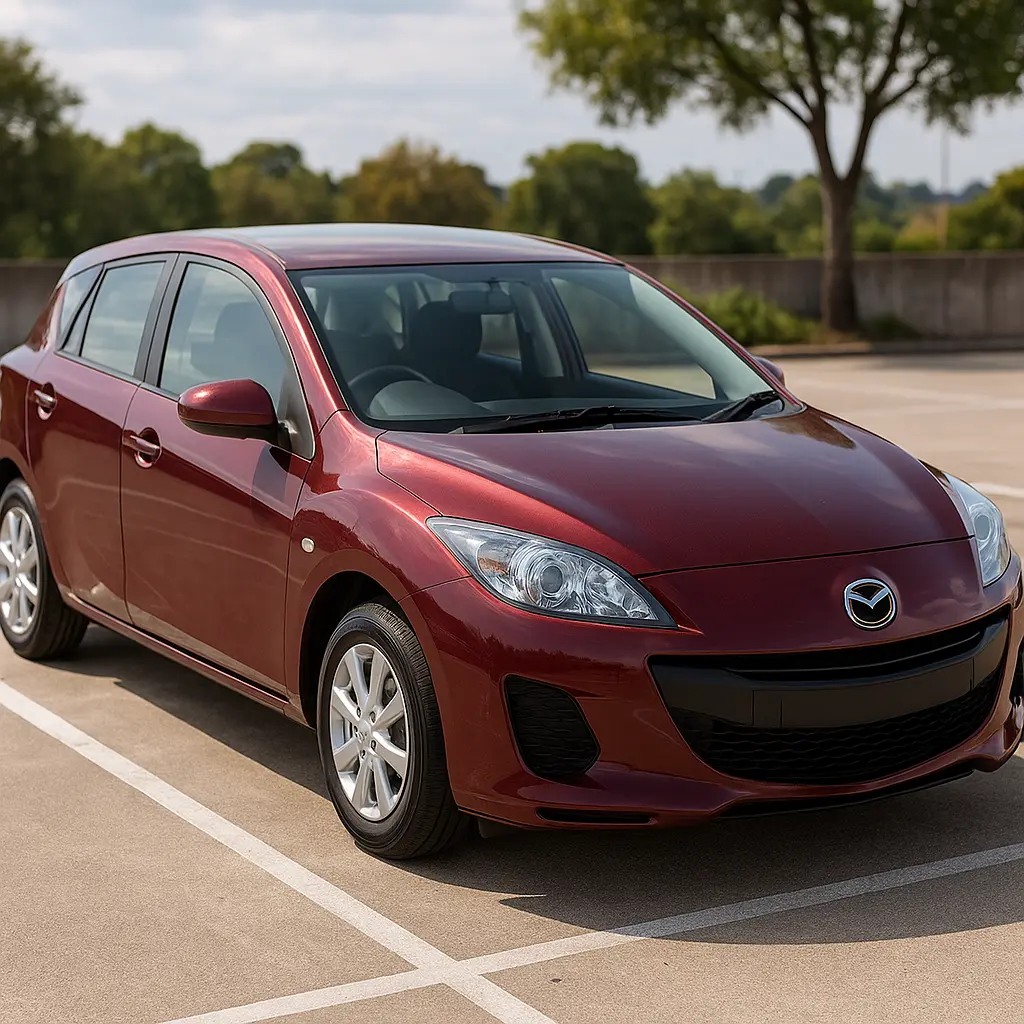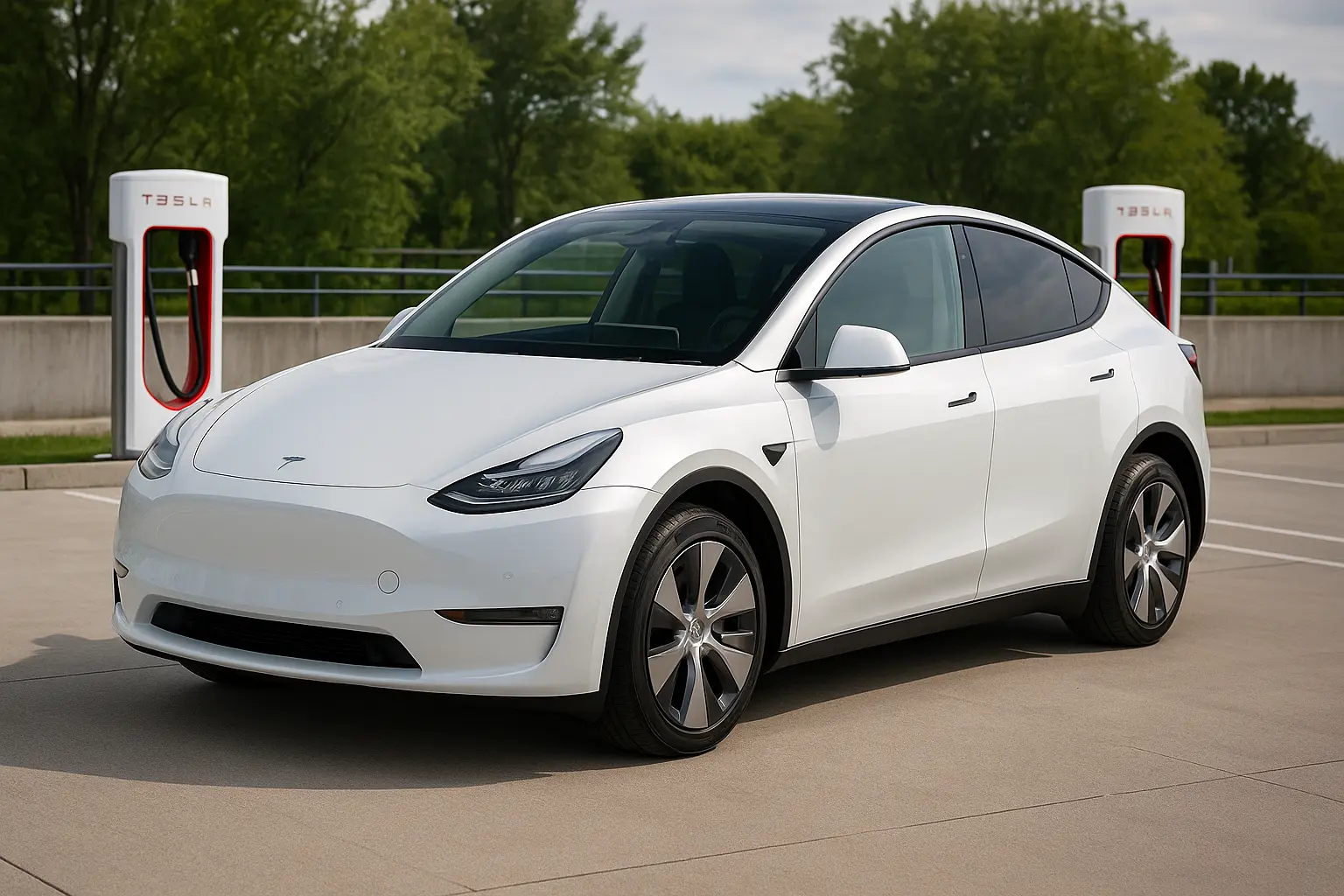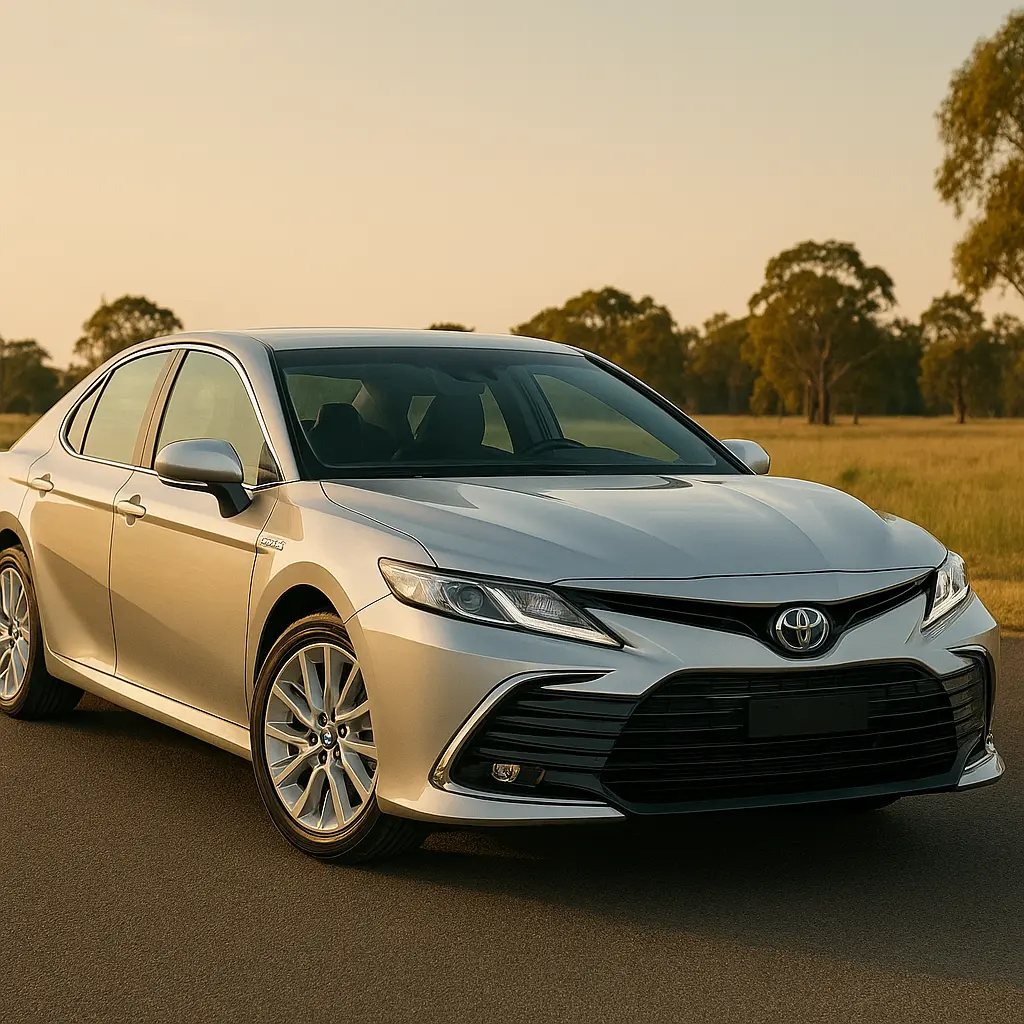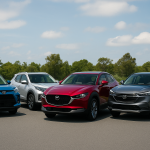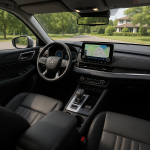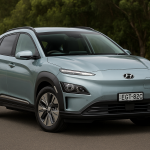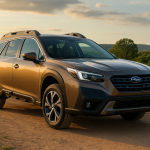Farming in Australia isn’t just a job—it’s a lifestyle built on long days, unpredictable weather, and distances that city drivers can hardly imagine. From early mornings moving stock across paddocks to hauling produce to market, Australian farmers need vehicles that combine toughness with versatility.
Unlike suburban commuters who might value comfort above all, rural drivers require machines that can handle muddy tracks, corrugated roads, towing heavy trailers, and carrying tools or livestock feed. That’s why the ute (utility vehicle) has long been the king of the farm. But as modern farming evolves, SUVs and even hybrid or electric workhorses are beginning to play a role.
This blog takes an in-depth look at the best vehicles suited for Australian farmers today—utes, SUVs, and other tough options—evaluating them for durability, towing, payload, off-road ability, and comfort.
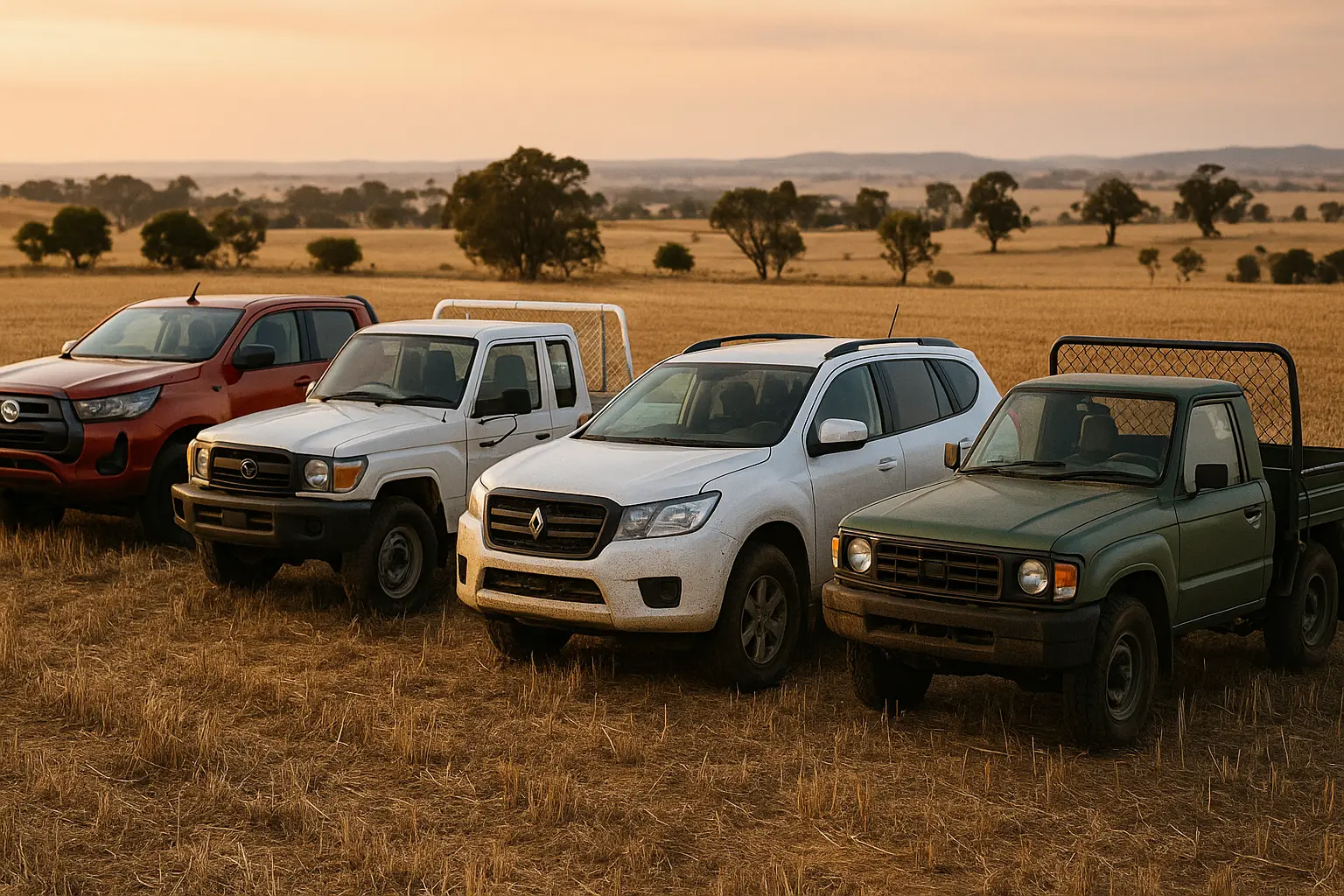
Utes: The Backbone of Australian Farming
No category is more iconic for Aussie farmers than the ute. For decades, the ute has been the default choice thanks to its balance of practicality, strength, and adaptability.
Toyota LandCruiser 70 Series
The LandCruiser 70 Series is often called the "farmer’s favourite." Known for its legendary reliability, this vehicle is simple, rugged, and built to survive in some of the harshest conditions.
- Why it works for farmers: It can tow up to 3.5 tonnes, carry a heavy payload, and its naturally aspirated diesel engines are tuned for longevity over speed.
- Strengths: Durability, 4WD capability, aftermarket support.
- Drawbacks: Expensive, lacks modern tech and comfort.
Toyota Hilux
Another iconic ute, the Hilux has been Australia’s top seller for years. Farmers love it for its mix of reliability and modern comforts.
- Why it works: Good payload capacity, solid towing, broad range of trims from basic workhorses to luxury dual-cabs.
- Strengths: Versatility, nationwide dealer support.
- Weaknesses: Ride comfort can be firm on rough paddocks.
Ford Ranger
The Ranger has quickly risen to challenge the Hilux for dominance. Farmers appreciate its strong engines and advanced features.
- Why it works: Excellent towing (up to 3.5 tonnes), wide cabin, advanced safety.
- Strengths: Powerful V6 diesel option, tech features for modern farming.
- Weaknesses: Higher trims can get pricey.
Isuzu D-MAX
Prized for reliability and durability, the D-MAX is a favourite among rural Australians.
- Why it works: Its 3.0-litre turbo diesel engine is built to last, with strong off-road ability.
- Strengths: Longevity, towing stability, good fuel economy.
- Weaknesses: Interior feels more utilitarian compared to rivals.
Nissan Navara
The Navara is often seen as a solid value buy for farmers needing a capable ute without the premium price tag.
- Strengths: Comfortable suspension, good towing.
- Weaknesses: Doesn’t quite match Hilux or Ranger in durability reputation.
SUVs: Practical Alternatives for Farmers
While utes remain dominant, many farmers are turning to SUVs for family and work use. SUVs offer more cabin comfort, enclosed cargo space, and are often better suited for mixed work-family life.
Toyota LandCruiser 300 Series
The spiritual successor to the classic farm cruiser, the LC300 is built for serious work.
- Why it works: 3.5-tonne towing, long-distance touring, advanced 4WD tech.
- Strengths: Extreme off-road ability, long service life.
- Weaknesses: Expensive and high running costs.
Toyota Prado
The Prado is slightly more affordable and versatile.
- Why it works: Strong towing, comfortable for family and work trips.
- Strengths: Reliability, resale value.
- Weaknesses: Less powerful than the LC300.
Ford Everest
Built on the Ranger’s platform, the Everest is gaining popularity with farmers who want SUV practicality.
- Strengths: Towing ability, rugged build, advanced cabin tech.
- Weaknesses: Pricier than some mid-size SUVs.
Isuzu MU-X
Farmers who love the D-MAX often turn to the MU-X for SUV needs.
- Strengths: Towing stability, reliability, durability.
- Weaknesses: Not as refined inside as Prado or Everest.
Specialty Rural Vehicles
Beyond mainstream utes and SUVs, farmers sometimes need more specific machines.
Dual-Cab Utes with Canopies
Many farmers fit their utes with canopies or trays to carry tools, feed, and gear. This effectively turns the vehicle into a mobile workshop.
Light Trucks
Some operations require light commercial trucks for heavy haulage. Brands like Hino, Fuso, and Isuzu Trucks dominate here.
All-Terrain Vehicles (ATVs) and Side-by-Sides
For moving around paddocks, checking stock, or spraying, smaller vehicles like ATVs or side-by-sides (e.g., Polaris Ranger, Yamaha Viking) are invaluable.
Key Features Farmers Should Look For
When choosing the right car for the farm, it’s not just about the badge—it’s about how well the vehicle suits the environment.
Towing & Payload
Farmers often haul livestock trailers, machinery, or produce. Utes and SUVs with 3.0–3.5-tonne towing capacity and strong payload ratings are essential.
Off-Road Ability
From muddy tracks to rocky hills, genuine 4x4 systems with low-range gearing make all the difference.
Reliability & Service
A vehicle breaking down 200 km from the nearest town isn’t just inconvenient—it can cost thousands. Reliability and wide service networks (Toyota, Isuzu, Ford) are crucial.
Cabin Comfort
Modern farming involves long hours behind the wheel. Vehicles with supportive seats, climate control, and infotainment systems can make those hours easier.
Running Costs & Fuel Efficiency
Diesel engines remain popular for rural driving due to efficiency and torque, though hybrid and electric utes are on the horizon.
The Rise of Electric and Hybrid Options
Australia’s EV market is still maturing, but farmers are keeping an eye on electric and hybrid vehicles.
- Hybrid SUVs like the Toyota RAV4 Hybrid and Prado Hybrid (coming soon) may offer fuel savings for farm families.
- Electric Utes (such as the incoming BYD ute and Tesla Cybertruck—if launched locally) promise torque and low running costs but face challenges with range and charging in rural areas.
Best Value for Farmers: What to Choose?
- Small family farms: A reliable ute like the Isuzu D-MAX or Toyota Hilux is perfect.
- Large-scale operations: A LandCruiser 70 Series or LC300 provides unmatched toughness.
- Mixed family/work use: An SUV like the Prado or Ford Everest balances comfort with farm readiness.
- Budget buyers: Consider second-hand Navaras, Colorado (used), or even older Hilux models.
Maintenance & Ownership Tips for Farmers
Keeping vehicles in top condition is essential. Farmers should:
- Stick to strict servicing intervals (dust and dirt can accelerate wear).
- Regularly check suspension, tyres, and underbody protection.
- Fit bull bars, snorkels, and underbody guards for paddock durability.
- Use quality diesel fuel and monitor filters in dusty conditions.
Conclusion
For Australian farmers, the right vehicle is more than transport—it’s a tool of the trade. Utes like the Toyota Hilux, Ford Ranger, and Isuzu D-MAX remain unbeatable for practicality, while SUVs like the Prado and Everest provide versatility for families. For those with larger properties or tougher demands, the LandCruiser 70 Series and LC300 continue to be legends.
As technology evolves, hybrid and electric options may one day reshape farming transport, but for now, tough diesels dominate. Farmers looking for the perfect vehicle should weigh towing, reliability, and durability above all else.
Leave a comment
Your email address will not be published. Required fields are marked *


